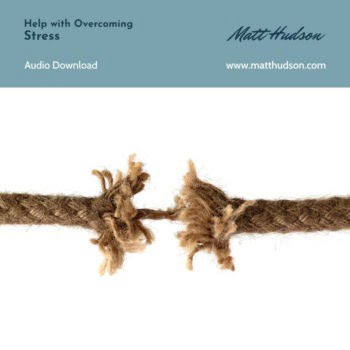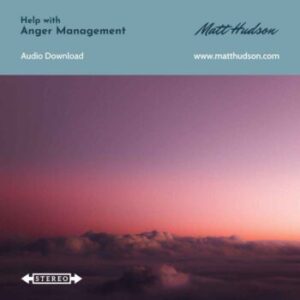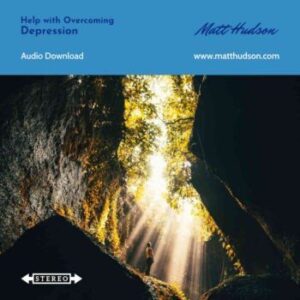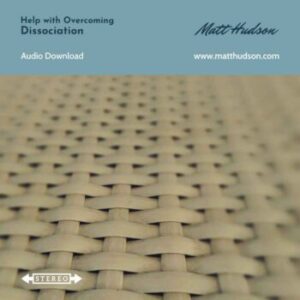Description
Medical definition of stress
Effects of stress on health
Facts about stress
The main fact that everyone needs to know is this:
Stress is not a cause of anything it is an effect of something.
The term ‘stress’ was coined by Hans Selye he stated that stress was a result of a person not adapting to the environment around them. This failure to adapt leads to unhappiness and disease. What Selye and the rest of the academic world did not recognise was the cause of stress.
The fact is that stress comes as a result of the body reacting to a threat from within the environment. The threat in prehistoric times may have been a predator that could seriously harm you, so the response is absolutely necessary in order for you to survive. Directly after the event your Fight/Flight/Freeze response would have returned to normal and you would have just got on with your day.
Nowadays the threats are more psychological than physical, the predator of the past has been replaced by Facebook, Google, Twitter plus other social and mainstream networks. They understand that ‘fear’ is big business. Your mind is forever being attacked or hacked into by these networks in order for you to buy their products and like what they say.
This is because your mind runs on information. This consists of pictures and sounds, which drive feelings. If you have had a traumatic or negative emotional event happen to you when you were growing up, then the chances are that you are still suffering in some way because of this. The original trauma is stored as an Emotional Memory Image (EMI) and whenever you enter an environment that is any way similar to the original, the EMI lights up, switching on your stress response and subsequently deregulating your HPA-axis. Basically, your stress response begins here and therefore it is not and cannot be a cause of any disease as it is a symptom.
Information streaming from the outside world into our nervous system through our sensory organs (eyes, ears, tongue, nose and skin) is modulated by our beliefs, values and our sense of survival via stored memories i, our current situation, predictions about the future and our interpretation about the whole scenario ii. Thus, rather than a faithful representation of physical matter, each individual constructs a conscious experience based on a very small amount of ‘physical stuff’. Cognitive neuroscientists have described conscious experience as an illusion of reality iii created by the brain as a form of a controlled hallucination [ANIL SETH], often using visual experience as the focus.
Coping with stress
Another Fact about stress
Can you be stressed and not know it?
Why stress is bad?
Selye – one of the pioneers of stress research – postulated that “there is an integrated syndrome of closely interrelated adaptive reactions to non-specific stress itself; this has been termed the ‘General Adaption Syndrome’. It develops in three stages: the ‘Alarm Reaction’, the Stage of Resistance, and the Stage of Exhaustion. In the biological sense stress, it is the interaction between damage and defence, just as in physics tension or pressure represents the interplay between a force and the resistance offered to it. iv
Not all stress is bad. Eustress is a healthy amount of stress, which helps to motivate us to get things done. At 3.00am when your bladder wants to empty, its eustress that wakes you up to go to the toilet, otherwise you will awaken with a cold wet bed!
The constant bombardment of cortisol flooding your system can be crippling to you over the short to medium term. It corrodes its way through your body, triggering huge amounts of inflammation, which underlies almost all human disease.
Illnesses related and caused by stress
The current medical model wants to blame most everything on lifestyle conditions and stress but that’s just not true. Stress is a symptom not a cause. Almost all disease has a psychophysiological component.
- Heart Disease is an obvious symptom of your bodies response to threat. High blood pressure, heart rate and blood flow cause the release of cholesterol and triglycerides into the blood stream. Owing to increased risk of smoking and obesity all of which can be connected to adverse childhood experiences (ACEs).
- Asthma, which can be seen in eastern cultures as having an underlying rage. Again many ACE’s sufferers are associated with poor respiratory conditions. There is little wonder that children with stressed out parents have a greater risk of developing asthma.
- Obesity. The human microbiome consists of an estimated 100 trillion microbes that predominantly live in our gut. A poor-quality diet and excess cortisol all impact on this wonderful health-giving part of our body. The simple way to see if you are suffering is to look down at your belly, if you can still see your toes then maybe it’s not so bad. Reducing your fuel source from sugar to fat is a great way of helping yourself, to get back on the road to health.
- Diabetes. The stress response can impact diabetes in two ways. First, because the primitive brain is engaged you are far more likely to indulge in unhealthy food and drink choices. Second the neurochemical response associated with the stress response directly raises the glucose level in type 2 diabetes.
- Migraines and Tension Headaches. The chemicals released during the stress response are considered one of the most common triggers for all manner of headaches.
- Depression and anxiety. The chronic stress response is connected with higher rates of anxiety and depression. One survey of recent studies found that people with a highly stressful job with poor rewards were far more likely to become depressed than people with a less stressful position.
- Gastrointestinal problems. The stress response is also a common factor in many other GI conditions, such as chronic heartburn (or gastroesophageal reflux disease, GERD) and irritable bowel syndrome (IBS).
- Alzheimer’s Disease Cortisol has been shown to literally erode the brain. This has lead some researchers to speculate that reducing stress has the potential to slow down the progression of the disease.
- Accelerated aging. There are many studies that show evidence the physical aging impact of oxidative stress. Information leads to inflammation, which leads to inflamaging. v vi
- Premature death. The ACE’s study has shown that the long-term impact of cortisol and adrenaline pumping through the body can lead to an early death vii.
How can stress actually be a good thing?
Illness caused by stress.
The list of illness caused by the bodies fight/flight/freeze system remaining switched on takes its toll on every part of you. There is literally an A to Z of health conditions that can arise because the parasympathetic nerves system hasn’t been able to switch you out of high into a low gear. Our bodies were designed for adaptation and survival, nowadays the predator is the bills that continually arrive, unemployment or the threat of losing a relationship. The modern world presents us with new threats and our mind is constantly scanning for them. If your sleep is impacted then the snowball effect grows massively in a very short period of time, as you become more irritable viii. This can then lead to chronic pain, cancer, diabetes, heart disease, asthma, gastroesophageal reflux disease (GERD), overactive thyroid, Parkinson’s disease and Alzheimer’s disease, to name but a few. A recent study has shown a similar negative impact on the mental and physical health of health workers during the COVID-19 Pandemic. ix
How can stress affect your health
The research into trauma and ACEs gives insights to the psychological and physiological impact of ACEs in later life/adulthood. Consider the impact of everyday experiences, poor job security, or uncaring spouse. If your sense of certainty is threatened then an impact on health, well-being and especially pain should be expected. The literature acknowledges that the brain continually scans the environment for ‘threats’ to the physiological and psychological integrity of the body. What if one was to consider Christmas dinner, a wedding or social celebration with all of the family, including ‘that’ person? The use of the word ‘that’ tells us that you have dissociated from the person and if they are going to be at a specific event then you can’t be certain of the outcome or you can and the outcome you imagine isn’t conducive to you. If you can acknowledge the last sentence, then you may have momentarily activated an emotional memory image. From here it may be easier to observe the thousand tiny cuts, rather than the one significant event from their past.
When a person is subject to a traumatic experience an imprint of the event is stored within the mind and the body, this process is defined as ‘mental imagery’. These hallucinations or images can be produced voluntarily by a person or non-voluntarily triggering the emotions and evoking the memories of past events. x
Health problems caused by stress
For centuries mental representations or emotional memory image (EMI’s) have been at the heart of philosophical, psychological and more recently neuroscientific discussion. According to cognitive neuroscience, mental images play a major role in improving cognitive and behavioural processes via sensory simulation xi. Anxiety disorders, depression, schizophrenia and Parkinson disease have all been linked to strong mental imagery and conversely it is being utilised as a powerful tool in psychological treatment, which often has a pain component associated xii.
There are some for whom mental imagery does not work as they have aphantasia and are unable to create mental images. Research on individuals with aphantasia may prove fruitful in developing our understanding of the role of mental imagery on emotions xiii.
Studies into adverse childhood experiences (ACEs) have shown children who have been exposed to possible traumatic experiences before age 18, are more likely to suffer higher rates of chronic pain than children who have not. xiv ACEs can consist of anything you may have witnessed or actually experienced as a child. e.g. grief, divorce, witnessing violence, sexual, emotional and physical abuse, bullying, neglect, growing up with narcissistic parent/s or caregivers with substance abuse or parents with low emotional intelligence, which does not preclude economic hardship or social standing. Approximately 45% of American children are reported to have experienced ACEs during their informative years. xv
How much stress is too much?
When you exceed your allostatic load then you have had too much stress. Allostasis is the ability to maintain balance whilst adapting in the next moment to life events. The father of stress Hans Selye said, “the penalties for failing to adapt are disease and unhappiness”.
Achieving Allostasis would appear to be the main challenge to human beings in the 21st century. The internal and external stressors of everyday life create wear and tear on our body and mind, this is known as the Allostatic Load. To gain more insights into this, please look at the work of Professor Bruce McEwan xvi. Historically we’ve never really been troubled by the Allostatic Load as stress was a healthy part of our adaptive system, danger would come, and our fight/flight mechanism would kick in flooding our body with stress hormones to ensure our survival. In today’s world the predators are no longer lions and tigers, they have been replaced by the erosion of the family home, job security, financial pressures and on top of that the often ‘cruel’ world of social media.
Emotional symptoms of stress:
- Become easily irritated or grumpy.
- Feel overwhelmed, like you are out of control or need to take it.
- Unable to relax and silence your troubled mind.
- Feeling bad about yourself (low self-esteem), lonely, worthless, and depressed.
- Avoiding others as you don’t feel that you fit in or that they will understand.
Physical symptoms of stress:
- Low energy
- Headaches
- Irritable Bowels (IBS) including sickness, diarrhoea and constipation.
- Aches, pains, and tense muscles as your body holds onto the stress.
- Rapid heartrate that may lead to chest pains.
- Chronic anxiety attacks as the pains in your chest feel like you are having a heart attack.
- Poor and erratic sleep patterns, insomnia and all manner of conditions associated to the problems caused by a lack of restful sleep.
- More prone to COVID infections as your immune system is exhausted.
- Erectile dysfunction or loss of sexual drive.
- Nervousness, cold or sweaty hands and feet.
- Delirium tremens (DTs) hands shaking and difficulty focusing on anything.
- Swallowing and eating food can become difficult as your immune system suppresses your appetite. Your dry throat makes it hard to swallow.
- Bruxism during sleep this is the clenching and grinding of your teeth.
Cognitive symptoms of stress include:
- You become a worrier.
- Your mind never rests.
- Forgetfulness and disorganisation.
- Your brain feels fuzzy making it difficult to focus.
- Your judgement is impaired as making decisions is too costly for your brain.
- Being pessimistic or only focusing on problems.
Behavioural symptoms of stress include:
- Feast or Famine – either not eating or eating too much.
- Procrastinating and avoiding responsibilities because it costs you more energy.
- Addictions can spiral out of control. Needing to find a way to sort the problem.
- Alcohol, drugs and cigarettes use increases.
- Exhibiting more nervous behaviours, such as nail biting, fretting, and pacing up and down, to try and burn off the excess cortisol and adrenaline that has built up in your body.
Hypnotherapy for stress
Hypnotherapy is a natural solution to this natural problem. Hypnotherapy gives the solution to a stressful mind by relaxing the stress response and allowing your subconscious mind to see the original stress/anxiety triggers as neutral. Your mind craves calmness and hypnosis delivers it to you. By choosing to use a hypnotherapy audio download you have the flexibility of taking a hypnosis session whenever you choose. Sitting back for 30 minutes per day your mind can reset the alarm bells, leaving you free to enjoy life again.
The huge rise in the use of hypnosis and hypnotherapy being used for the treatment of stress and anxiety has prompted a systemic review (xiv). The study was to look at into the efficacy of hypnosis and hypnotherapy. The evidence for hypnosis to influence perceived stress is unclear. Many randomized trials and clinical studies were evaluated to discover why hypnosis has an impact on perceived stress reduction and coping.
We believe that we’ve discovered the cause of stress and if you look at the world through our eyes, then we are sure that it will make sense to you.
My Audio Download
Stress is a symptom, not a condition. It is very important for you to realise this if you are to be free. Human Beings like chameleons are masters of adaptation. When life gives you lemons make lemonade! If you imagine driving along a motorway and your car windscreen becomes obscured so you can no longer see, the most natural thing to do is hit the brakes. My work shows that the screen inside your mind can become obscured too, you will feel overwhelmed as your HPA axis deregulates engaging your amygdala and flooding your system with a number of stress hormones including adrenaline and cortisol. Adaptation is key to a healthy flexible life, by helping you to clear the screen within your biofield, your system will automatically return to balance.
This audio production is designed to help you develop a more adaptable mind so that you can live each day anew. By clearing negatively charged Emotional Memory Images from your external screen, your mind and body are able to adapt to the present moment, freeing you of the mental clutter that prevents your brain from resting, calmly, gently and at ease. This audio is your own personal 1 to 1 session with Matt and is always available at your convenience.
Matt’s calming, assuring voice gently guides both your conscious mind and unconscious mind towards transformation through the left and right ear respectively. By tapping into the body’s psychoneuroimmunilogical mechanisms – the link between the mind, nervous system and physical wellbeing – this audio helps your brain to improve its cognitive processing ability so your mind will be free to run brighter, colourful movies where you can reconnect all of your desires, experiencing them fully, through thought into deeply relaxing dreams.
For best results, listen to this audio download first thing in the morning or during the day, every day for 4 weeks. Ensure you’re free from interruptions and distractions when listening. Download now to start building up your learning power and transform your current thoughts into powerful drivers for change.
This audio is a .MP3 file, compatible with smartphones, tablets, PC’s and other electronic devices.
Audio length: 30 minutes.





